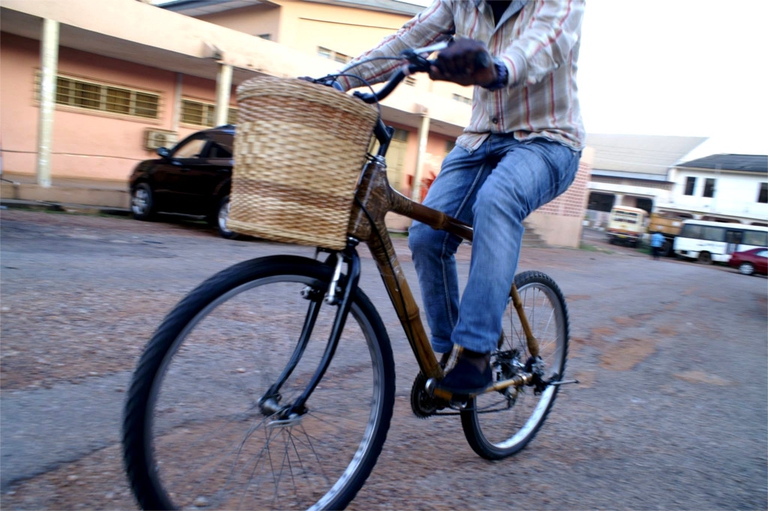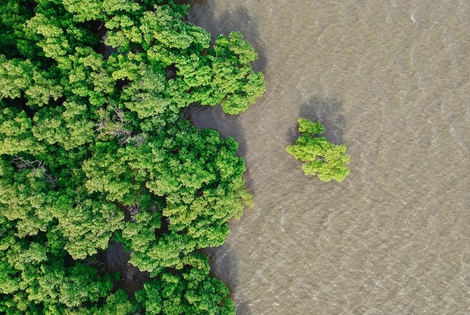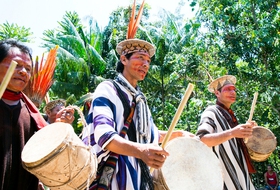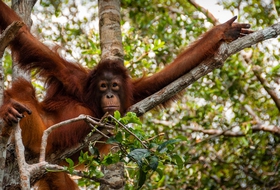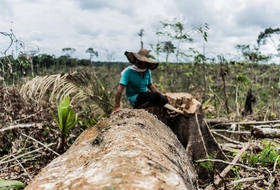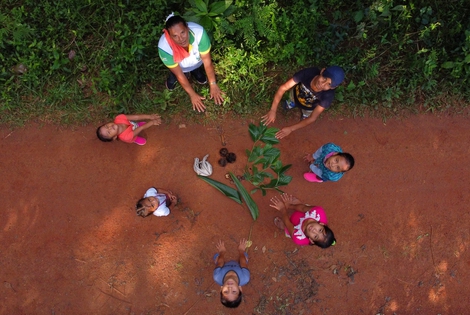
The Amazon became an alternative classroom during the pandemic. Now, the educational forest in Batraja, Bolivia, lives on to teach children and adults the value of nature.
Bamboo bicycles become a low-impact source of wealth: Ghana bamboo bikes initiative is a social enterprise that has put sustainability at its heart.
Ghana relies on bamboo bikes to revive its economy and promote the use of eco-friendly means of transport. Ghana bamboo bikes initiative is a social enterprise that cares about four important issues: climate change, poverty, migration from rural areas to cities and the high unemployment rate among young people in rural Ghana.
This NGO managed to hire and train women and young people (25 bike builders and 10 farmers), some of whom are disabled. The profit allows the buciness to donate some bikes to the local community and in particular to children and teenagers who usually have to walk many kilometres to go to school.
Bernice Dapaah, founder of Ghana bamboo bikes initiative, made bikes even greener: bamboo grows rapidly, so opting for it instead of using wood is a way to avoid deforestation and reduce the environmental impact of this initiative. The company has available a land where to grow bamboo. The parts of the bicycle can be easily recycled and for every plant used to build bikes, ten new plants will be planted.
They have a lower environmental impact also because less electricity is used during their production process compared to traditional bikes: “a bamboo bicycle helps reduce carbon emissions by up to 70%” the company’s website reads. Bamboo bikes can also be customised with writings and logos on the frame.
For their success, bamboo bikes are sold all over the world (and the Ghanese company will collaborate in an Italian project), and the social enterprise that invented them set an example for other African countries. “At the initial stages – Bernice Dapaah said – it was a bit difficult because the prototype wasn’t successful. But later we kept trying, in business there is always a risk. But with perseverance we can go far”.
Siamo anche su WhatsApp. Segui il canale ufficiale LifeGate per restare aggiornata, aggiornato sulle ultime notizie e sulle nostre attività.
![]()
Quest'opera è distribuita con Licenza Creative Commons Attribuzione - Non commerciale - Non opere derivate 4.0 Internazionale.
The Amazon became an alternative classroom during the pandemic. Now, the educational forest in Batraja, Bolivia, lives on to teach children and adults the value of nature.
Our species took its first steps in a world covered in trees. Today, forests offer us sustenance, shelter, and clean the air that we breathe.
Bangladesh suffered widespread damage as a result of Cyclone Amphan. Yet the Sundarbans mangrove forest acted as a natural barrier protecting the country from further destruction, as it has done countless times before.
On top of a 2.4 million dollar compensation, the indigenous Ashaninka people will receive an official apology from the companies who deforested their lands in the 1980s.
The tapir was reintroduced into Brazil’s Atlantic Forest, the country’s most at-risk ecosystem. The species can play a key role in the forest’s recovery.
Forests are home to 80 per cent of the world’s terrestrial biodiversity. This year’s International Day of Forests highlights the urgent changes needed to save them.
After a legal battle that lasted two years, Indonesia’s Supreme Court has revoked the permit to mine for coal in the forests of South Kalimantan in Borneo.
The list of human and animal victims of the Australia wildfires keeps growing – one species might already have gone extinct – as the smoke even reaches South America.
Areas where the FARC guerrilla used to hold power in Colombia have faced record deforestation. Farmers cut down trees, burn land and plant grass for cows. Because, “what else can we do for a living here in the Colombian Amazon”? An intimate report from the heart of the felled forest in Caquetá.
